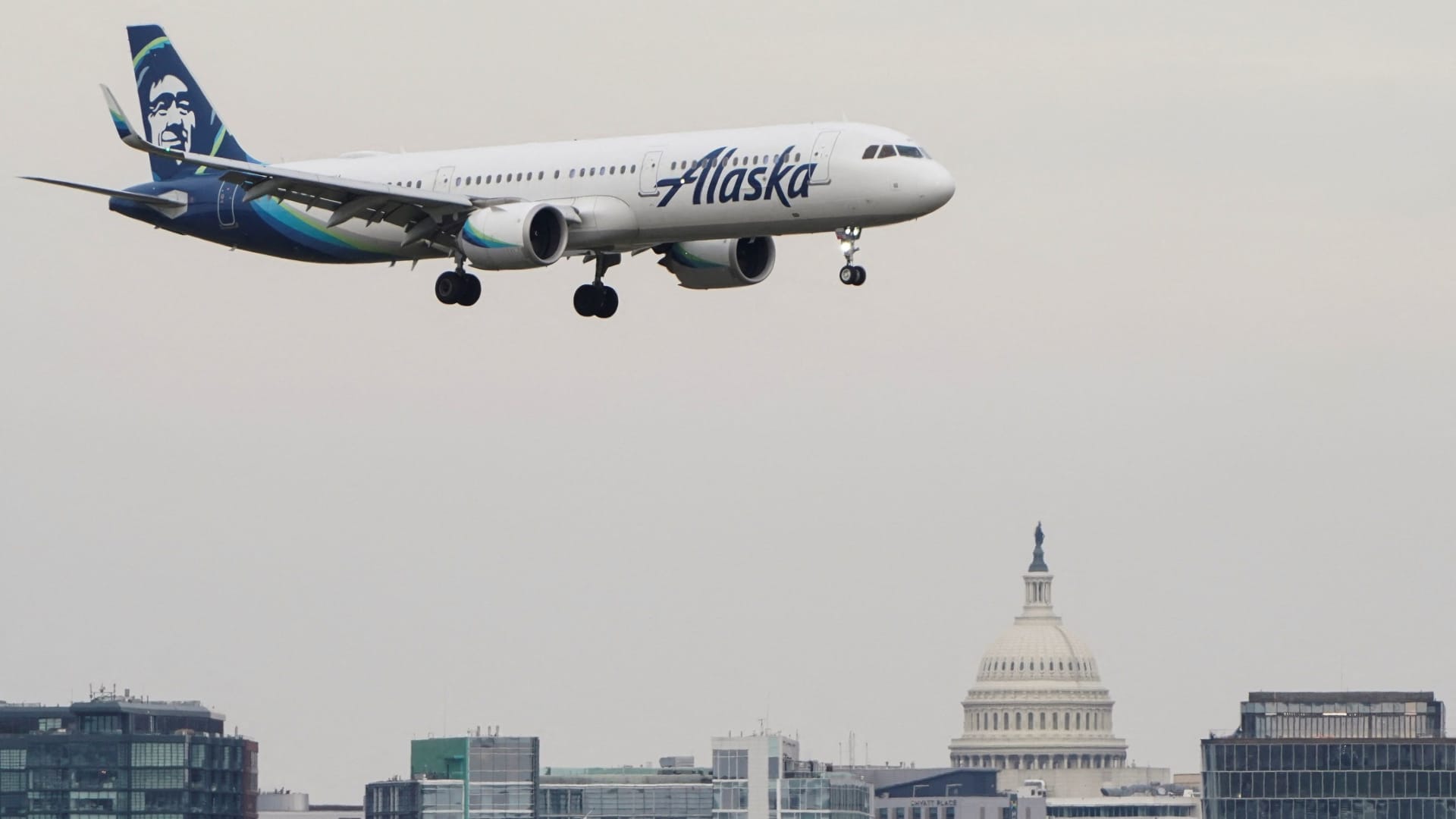Alaska Air Group‘s executives spent months working on its plan to buy rival Hawaiian Airlines. The airlines’ leaders will now spend many more trying to convince regulators the acquisition should go ahead.
It could be the latest in a string of challenges brought by President Joe Biden’s Justice Department against airline deals it views as anticompetitive.
The $1.9 billion cash and debt deal, announced Sunday, comes less than a year after the Justice Department sued to block another deal: JetBlue Airways‘ $3.8 billion cash acquisition of budget carrier Spirit Airlines. The Justice Department argued that the purchase of Spirit would harm consumers in the form of higher fares if the budget airline is absorbed by JetBlue. Earlier this year, the Justice Department successfully broke up JetBlue’s partnership with American Airlines in the U.S. Northeast.
In both that limited alliance and the Spirit acquisition, JetBlue argued it needed to team up to better compete with larger rivals, and grow, when planes and pilots are in short supply.
More than a decade of airline mergers left four airlines — American, Delta, Southwest and United — in control of around 80% of U.S. airline capacity. Alaska has a more than 5% share of U.S. airlines’ capacity and Hawaiian has a less than 2% share, according to Cirium data.
The Alaska-Hawaiian deal comes as Hawaiian has faced a host of challenges including like the Maui wildfires, increased competition in Hawaii from Southwest and a slower recovery of some long-haul Asia routes.
Deal differences
The Alaska-Hawaiian and JetBlue-Spirit deals are different in approach, but the Alaska acquisition could still face hurdles with regulators.
For example, JetBlue plans to remodel Spirit’s tightly packed yellow planes to take out seats and bring on board more amenities like seat-back screens, while getting rid of the Spirit brand and model entirely. Alaska, meanwhile, said it plans to keep separate Hawaiian and Alaska brands, two carriers that are key to the far-flung states they serve.
That’s different from Alaska’s 2016 acquisition of Virgin America, when it spent years getting rid of Virgin’s branding and fleet of Airbus jets in favor of a streamlined Boeing airline.
The Justice Department declined to comment on the Alaska-Hawaii deal on Monday, but some experts said they expect a challenge from regulators.
“The starting point is one of skepticism,” said William Kovacic, a professor at the George Washington School of Law and a former chair of the Federal Trade Commission.
He said the Justice Department’s review of the deal will focus on where Hawaiian and Alaska compete and “consider how the two companies might have expanded service in different ways were it not for the merger itself.”
Alaska and Hawaiian executives have defended their deal, citing little overlap and the ability to expand their reach. The carriers’ CEOs said the deal will help them expand their networks, giving Alaska access to Hawaiian’s network in the Asia-Pacific region and expanding Hawaiian’s current reach with Alaska’s network throughout the U.S., for example.
“We’re confident that this is unique from others that are pursuing combinations,” Alaska CFO Shane Tackett said in an interview with CNBC. “We have very similar product offerings and we have very limited network overlap.” He said that the two carriers have about a 3% overlap with seats and 12 routes.
In the Justice Department’s lawsuit against the JetBlue-Spirit deal, “they really lean heavily on the catalyzing role that Spirit in particular, but that Spirit and JetBlue can play in the market,” said Samuel Engel, a lecturer at Boston University’s Questrom School of Business and senior vice president at consulting firm ICF. “I don’t think anyone has every argued that about Alaska and Hawaiian,” he added.
“That said, the posture of this administration has suggested there are not many mergers they would embrace,” he said.
Alaska and Hawaiian executives said they expect it to take 12 to 18 months to close the deal, a timeframe which would push it beyond next year’s presidential election and potentially into a new administration.
Hawaiian’s stock nearly tripled on Monday to $14.22 a share, though still below the proposed purchase price. Alaska’s shares lost 14.2% to end the day at $34.08.
